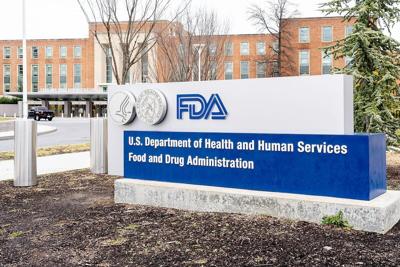Key Takeaways
The U.S. Food and Drug Administration is considering changes to a 20-year-old warning on menopause hormone therapy
Experts say the warning has discouraged safe use of treatment for hot flashes, poor sleep and other symptoms
Research suggests hormone therapy can be safer and more effective when started earlier in menopause
MONDAY, Oct. 6, 2025 (HealthDay News) — The U.S. Food and Drug Administration (FDA) is reviewing whether to change the warning label on hormone replacement therapy (HRT) drugs used to treat menopause symptoms, a move many experts say is long overdue.
“We are in serious discussions now about what to do about the black box warning, and I think you’ll hear something on it very soon,” FDA Commissioner Dr. Martin Makary said on CNN’s Chasing Life podcast with Dr. Sanjay Gupta.
A black box warning is the FDA's most stringent for a prescription drug or medical device.
Since 2003, it has appeared on all estrogen menopause drugs. It warns of risks such as breast and uterine cancer, blood clots, stroke and dementia in women over 65.
The decision followed findings from the Women’s Health Initiative, a 2002 study that linked estrogen use in older women to certain health risks.
However, later reviews found those results may not apply to younger women who begin therapy closer to starting menopause.
Since the label was added, prescriptions for hormone therapy have dropped by more than 70%. About 1 in 25 postmenopausal women now use HRT, down from 1 in 4 in the late 1990s, one study showed.
Many experts say the warning has led to unnecessary fear and untreated symptoms such as hot flashes, night sweats and poor sleep.
“It’s really a tragedy. It’s maybe one of the greatest screw-ups of modern medicine,” Makary said. “It’s resulted in 50 million women being denied this incredible therapy.”
In July, an FDA advisory panel of gynecologists and endocrinologists urged the agency to remove the warning, especially for certain forms of estrogen that do not enter the bloodstream like low-dose creams, tablets or rings used to treat dryness and urinary infections.
Dr. JoAnn Manson of Harvard Medical School said the current warning does more harm than good.
“It scares them away. And even after they purchase the product, they just don’t take it,” Manson told CNN.
Other experts agreed that the risk is not the same across all products. Estrogen pills may carry higher risks than patches or creams, which research suggests may be safer for the heart.
Still, some experts caution that more research is needed before promoting long-term HRT use to prevent conditions like heart disease, Alzheimer's or osteoporosis.
“Women have to talk to their physicians about hormone replacement therapy before they believe in all the hype that’s currently ongoing, because so much of it is hype,” Dr. Leslie Cho of the Cleveland Clinic told CNN.
More information
The Menopause Society has more on hormone therapy.
SOURCE: CNN, Oct. 2, 2025
What This Means For You
If you’re considering hormone therapy for menopause, talk with your doctor. Not all products have the same risks, and newer research shows therapy started earlier may actually be safer for many women.














(0) comments
Welcome to the discussion.
Log In
Keep it Clean. Please avoid obscene, vulgar, lewd, racist or sexually-oriented language.
PLEASE TURN OFF YOUR CAPS LOCK.
Don't Threaten. Threats of harming another person will not be tolerated.
Be Truthful. Don't knowingly lie about anyone or anything.
Be Nice. No racism, sexism or any sort of -ism that is degrading to another person.
Be Proactive. Use the 'Report' link on each comment to let us know of abusive posts.
Share with Us. We'd love to hear eyewitness accounts, the history behind an article.